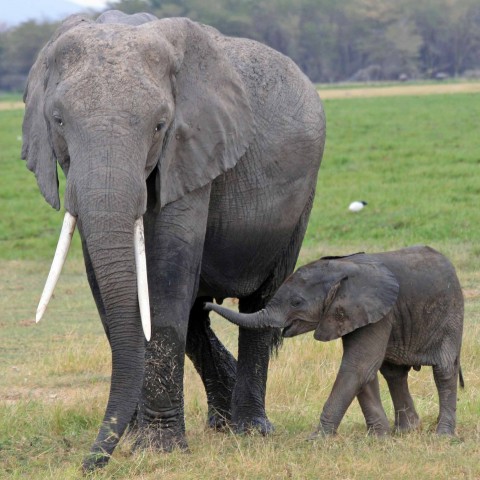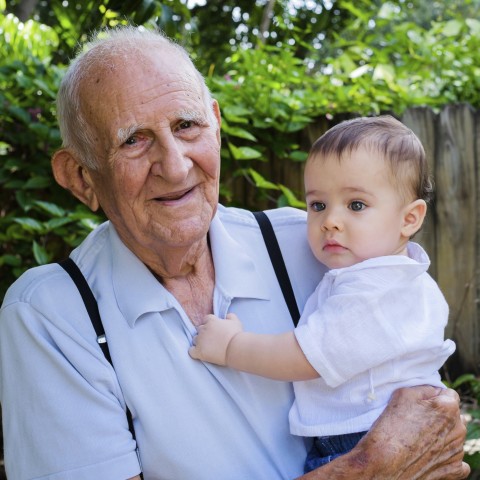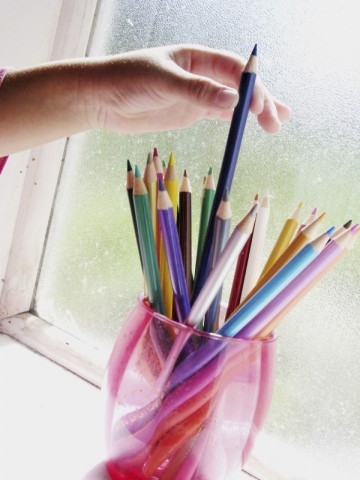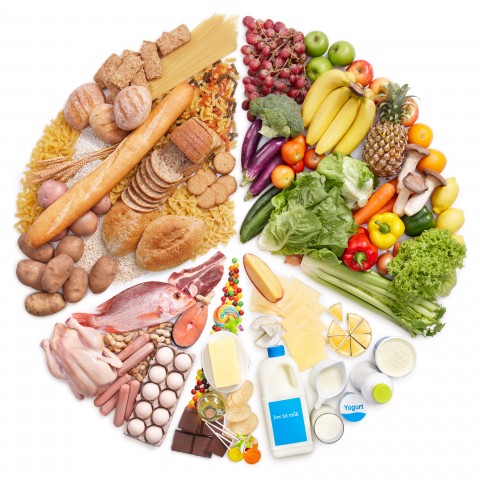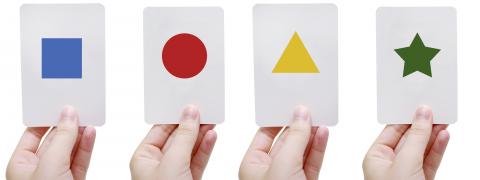It’s великолепная идея (velikolepnaya ideya)—”a great idea”—to learn Russian adjectives ahead of nouns and verbs. They can be used as a whole sentence when speaking, so once you have the most essential Russian adjectives down, you can start characterizing objects, people, and occasions right away. For advanced learners, Russian adjectives will make your speech richer, wittier, and more expressive.
Table of Contents
- Russian Grammar: Adjectives & How They Work
- Top 100 Russian Adjectives Every Language Learner Should Know
- Conclusion
1. Russian Grammar: Adjectives & How They Work
The declension of Russian adjectives might seem difficult at first, but after seeing some example sentences and getting deeper into the language as a whole, you’ll start to feel the logic and beauty of how everything is thought through.
Before you learn Russian adjectives themselves, you need to become familiar with some Russian grammar. The endings of Russian language adjectives change depending on the nouns that they describe. In order to change an adjective correctly, you need to know what case the noun is, its grammatical gender (for singular nouns), and if it’s singular or plural.
Usually, in a dictionary, Russian adjectives are given in the singular, nominative, masculine form. You’ll notice that adjectives in Russian have four different endings: -ый, -ий (not stressed), -ий (stressed), and -ой. Adjectives with –ый and -ий (not stressed) endings will change one way, and adjectives with -ий (stressed) and -ой endings will change another way.
Here’s a table to use so you can better see the changing form of Russian adjectives:
| Singular | Plural | ||||
|---|---|---|---|---|---|
| Masculine | Neutral | Feminine | All genders | ||
| Nominative | -ый / -ий (not stressed)
-ой / -ий (stressed) |
-ое
-ее |
-ая
-яя |
-ые
-ие |
|
| Genitive | -ого
-его |
-ой | -ых
-их |
||
| Dative | -ому
-ему |
-ой
-ей |
-ым
-им |
||
| Accusative |
Animate Not animate |
As in Genitive
As in Nominative |
As in Nominative | -ую
-юю |
As in Genitive
As in Nominative |
| Instrumental | -ым
-им |
-ой
-ей |
-ыми
-ими |
||
| Prepositional | -ом
-ем |
-ой
-ей |
-ых
-их |
||
Russian adjectives exercises: Don’t memorize the endings themselves. If you don’t have an absolutely perfect memory, that would probably take a really long and boring time. :) The best way to learn the table is to make whole sentences for each adjective ending and memorize these sentences.
For example:
Мне нравятся русские девушки
Mne nravyatsya russkiye devushki
“I like Russian girls.”
In the above sentence, the noun девушки (devushki), meaning “girls,” is the plural, accusative case.
Я поеду в Южную Корею
Ya poyedu v Yuzhnuyu Koreyu
“I will go to South Korea.”
In the above sentence, the noun Корея (Koreya), meaning “Korea,” is the singular, accusative case, feminine gender.
Я не привык к острой еде
Ya ne privyk k ostroy yede
“I am not used to spicy food.”
In the above sentence, the noun еде (yede), meaning food,” is the singular, dative case, feminine gender.
In Russian grammar, adjectives can be full and short. Short adjectives are used only in the nominative case:
| Singular | Plural | ||
|---|---|---|---|
| Masculine | Neutral | Feminine | All genders |
| No ending | -о | -а | -ы |
In terms of Russian word order, adjectives that are full usually stand before the noun:
Маленький котёнок мяукает
Malen’kiy kotyonok myaukayet
“A small kitten mews.”
Short adjectives are part of the predicate and stand after the noun:
Он стар
On star
“He is old.”
2. Top 100 Russian Adjectives Every Language Learner Should Know
For this Russian adjectives lesson, we’ve analyzed different lists of the most-used Russian words, took the adjectives from there, and have prepared a nice guide for you. All adjectives are grouped according to their meaning, and adjectives with opposite meanings follow each other.
Russian adjectives exercises: To learn Russian adjectives, make a sentence with each of them. Afterwards, you can check this sentence with our MyTeacher program for Russian-learners to get feedback from professional Russian teachers.
Let’s get started with our Russian adjectives list!
1- Describing Appearance, Sizes & Weight
Маленький (malen’kiy) — “small; little”
Маленькая игрушка (malen’kaya igrushka) — “a small toy”
Большой (bol’shoy) — “big”
Большой дом (bol’shoy dom) — “a big house”
Огромный (ogromnyy) — “huge”
Огромная комната (ogromnaya komnata) — “a huge room”
Высокий (vysokiy) — “tall; high”
Высокое дерево (vysokoye derevo) — “a tall tree”
Высокий балл (vysokiy ball) — “a high score”
Низкий (nizkiy) — “low; short”
Низкий стул (nizkiy stul) — “a low chair”
Новый (novyy) — “new”
Новый рюкзак (novyy ryukzak) — “a new backpack”
Полный (polnyy) — “full”
Полная чашка (polnaya chashka) — “a full cup”
Пустой (pustoy) — “empty”
Пустой кошелёк (pustoy koshelyok) — “an empty wallet”
Тяжёлый (tyazholyy) — “heavy”
Тяжёлая коробка (tyazhyolaya korobka) — “a heavy box”
Лёгкий (lyogkiy) — “light; easy”
This Russian adjective is used to talk about weight and levels of difficulty.
Лёгкая сумка (lyogkaya sumka) — “a light bag”
Лёгкий диктант (lyogkiy diktant) — “an easy dictation, quiz”
Длинный (dlinnyy) — “long”
Длинный провод (dlinnyy provod) — “a long cable”
Короткий (korotkiy) — “short”
Короткая юбка (korotkaya yubka) — “a short skirt”
Широкий (schirokiy) — “wide; broad”
Широкая дорога (schirokaya doroga) — “a wide road”
Узкий (uzkiy) — “narrow; tight”
Узкие джинсы (uzkiye dzhinsy) — “tight jeans”
Чистый (chistyy) — “clean”
Чистый пол (chistyy pol) — “a clean floor”
Грязный (gryaznyy) — “dirty”
Грязная одежда (gryaznaya odezhda) — “dirty clothes”
Грязные шутки (gryaznyye shutki) — “dirty jokes”
Тонкий (tonkiy) — “thin”
Тонкие колготки (tonkiye kolgotki) — “thin tights”
Тонкий юмор (tonkiy yumor) — “a witty humor”
2- Russian Adjectives to Describe a Person
Молодой (molodoy) — “young”
Молодой человек (molodoy chelovyek) — “a young man”
Старый (staryy) — “old”
Старый дед (staryy ded) — “an old granddad”
Сильный (sil’nyy) — “strong”
Сильный мужчина (sil’nyy muzhchina) — “a strong man”
Сильное желание (sil’noye zhelaniye) — “a strong desire”
Слабый (slabyy) — “weak”
Слабые руки (slabyye ruki) — “weak arms”
Страшный (strashnyy) — “scary”
Страшный сон (strashnyy son) — “a scary dream; nightmare”
Красивый (krasivyy) — “beautiful; handsome; pretty”
Красивая девушка (krasivaya devushka) — “a beautiful girl”
Прекрасный (prekrasnyy) — “splendid; fine; great”
Прекрасная погода (prekrasnaya pogoda) — “great weather”
Милый (milyy) — “cute; dear”
Милый ребенок (milyy rebyonok) — “a cute kid”
Худой (khudoy) — “skinny”
Худая девушка (khudaya devushka) — “a skinny girl”
Толстый (tolstyy) — “fat”
Толстый кот (tolstyy kot) — “a fat cat”
Богатый (bogatyy) — “rich”
Богатый сосед (bogatyy sosed) — “a rich neighbor”
Бедный (bednyy) — “poor”
Бедный официант (bednyy ofitsiant) — “a poor waiter”
Больной (bol’noy) — “ill; aching; hurting”
Больное горло (bol’noye gorlo) — “an aching throat”
Здоровый (zdorovyy) — “healthy”
Здоровая еда (zdorovaya yeda) — “healthy food”
Старший (starshiy) — “older; elder”
Старший брат (starshiy brat) — “an elder brother”
Младший (mladshiy) — “younger”
Младшая сестра (mladshaya sestra) — “a younger sister”
Детский (detskiy) — “kids’”
Детская спальня (detskaya spal’nya) — “kids’ bedroom”
Взрослый (vzroslyy) — “adult”
Взрослый человек (vzroslyy chelovek) — “an adult person”
3- Describing Personalities and Feelings
Добрый (dobryy) — “kind”
Добрый доктор (dobryy doktor) — “a kind doctor”
Злой (zloy) — “angry”
Злая собака (zlaya sobaka) — “an angry dog”
Верный (vernyy) — “loyal”
Верный друг (vernyy drug) — “a loyal friend”
Уверенный (uverennyy) — “confident”
Уверенный ответ (uverennyy otvet) — “a confident answer”
Серьёзный (ser’yoznyy) — “serious”
Серьёзный разговор (ser’yoznyy razgovor) — “a serious talk”
Счастливый (schastlivyy) — “happy”
Счастливая семья (shchastlivaya sem’ya) — “a happy family”
Опасный (opasnyy) — “dangerous”
Опасное приключение (opasnoye priklyucheniye) — “a dangerous adventure”
Весёлый (vesyolyy) — “funny”
Весёлый друг (vesyolyy drug) — “a funny friend”
Скучный (skuchnyy) — “boring”
Скучный урок (skuchnyy urok) — “a boring lesson”
For more adjectives for describing personality, check out our dictionary list.
4- Describing Colors
Белый (belyy) — “white”
Белый снег (belyy sneg) — “white snow”
Красный (krasnyy) — “red”
Красная кровь (krasnaya krov’) — “red blood”
Чёрный (chyornyy) — “black”
Чёрный костюм (chyornyy kostyum) — “a black suit”
Зелёный (zelyonyy) — “green”
Зелёная трава (zelyonaya trava) — “green grass”
Жёлтый (zhyoltyy) — “yellow”
Жёлтая футболка (zhyoltaya futbolka) — “a yellow T-shirt”
Синий (siniy) — “intense blue”
Синие глаза (siniye glaza) — “intense blue eyes”
Голубой (goluboy) — “light blue”
Голубое небо (goluboye nyebo) — “a light blue sky”
Серый (seryy) — “gray”
Серый волк (seryy volk) — “a gray wolf”
Тёмный (tyomnyy) — “dark”
Тёмный цвет (tyomnyy tsvet) — “a dark color”
Светлый (svetlyy) — “light; bright”
This Russian adjective is used to talk about the light, as well as colors.
Светлая комната (svetlaya komnata) — “a bright room”
5- Evaluating Things
Важный (vazhnyy) — “important”
Важный звонок (vazhnyy zvonok) — “an important call”
Хороший (khoroshiy) — “good”
Хорошая рубашка (khoroshaya rubashka) — “a good shirt”
Плохой (plokhoy) — “bad”
Плохой пловец (plokhoy plovets) — “a bad swimmer”
Любимый (lyubimyy) — “favorite”
Любимый цвет (lyubimyy tsvet) — “a favorite color”
Настоящий (nastoyashchiy) — “real; true”
Настоящая любовь (nastoyashchaya lyubov’) — “a real love”
Нужный (nuzhnyy) — “necessary”
Нужная вещь (nuzhnaya veshch’) — “a necessary/important thing”
Известный (izvestnyy) — “famous”
Известный актер (izvestnyy aktyor) — “a famous actor”
Знакомый (znakomyy) — “known; familiar”
Знакомая песня (znakomaya pesnya) — “familiar song”
Похожий (pokhozhiy) — “similar”
Похожая проблема (pokhozhaya problema) — “a similar problem”
Следующий (sleduyushchiy) — “the next”
Следующая книга (sleduyushchaya kniga) — “the next book”
Личный (Lichnyy) — “personal”
Личные вещи (Lichnyye veshchi) — “personal belongings”
Простой (prostoy) — “easy; simple”
This Russian adjective is used to talk about a level of difficulty.
Простое решение (prostoye resheniye) — “a simple solution”
Сложный (slozhnyy) — “difficult; complicated”
Сложная задача (slozhnaya zadacha) — “a difficult task”
Единственный (yedinstvennyy) — “the only”
Единственный ребёнок в семье (yedinstvennyy rebyonok v sem’ye) — “the only child in the family”
Последний (posledniy) — “the last; the latest”
Последняя песня (poslednyaya) — “the last/the latest song”
Лучший (luchshiy) — “the best”
Лучший учитель (luchshiy uchitel’) — “the best teacher”
Основной (osnovnoy) — “primary; first; basic”
Основная идея (osnovnaya ideya) — “the initial idea”
Главный (glavnyy) — “main; chief; head”
Главный бухгалтер (glavnyy bukhgalter) — “Chief accountant”
Бывший (byvshiy) — “ex-; last”
Бывшая девушка (byvshaya devushka) — “ex-girlfriend”
Особый (osobyy) — “special”
Особый день (osobyy den’) — “a special day”
Обычный (obychnyy) — “usual”
Обычный день (obychnyy den’) — “a usual day”
Поздний (posdniy) — “late”
Поздний ужин (posdniy uzhin) — “a late dinner”
Ранний (ranniy) — “early”
Ранний подъем (ranniy pod’yom) — “an early wakeup”
6- Describing Tastes and Temperatures
Острый (ostryy) — “spicy”
Острое мясо (ostroye myaso) — “a spicy meat”
Солёный (solyonyy) — “salty”
Солёный суп (solyonyy sup) — “salty soup”
Сладкий (sladkiy) — “sweet”
Сладкое яблоко (sladkoye yabloko) — “a sweet apple”
Кислый (kislyy) — “sour”
Кислый лимон (kislyy limon) — “a sour lemon”
Холодный (kholodnyy) — “cold”
Холодные руки (kholodnyye ruki) — “cold hands”
Тёплый (tyoplyy) — “warm”
Тёплый салат (tyoplyy salat) — “a warm salad”
Горячий (goryachiy) — “hot”
This Russian adjective is used to talk about this temperature in all cases, except for weather.
Горячая ванна (goryachaya vanna) — “a hot bath”
Жаркий (zharkiy) — “hot”
This one is used to talk about the weather or the temperature of the air.
Жаркая страна (zharkaya strana) — “a hot country”
Usually, Russians go to hot countries for their summer vacations.
Learn more about how to describe weather conditions with our list, and study up on Russian food with our Russian food vocabulary list.
7- Describing Places
Долгий (dolgiy) — “long”
Долгая поездка (dolgaya poyezdka) — “a long trip”
Быстрый (bystryy) — “fast; quick”
Быстрая уборка (bystraya uborka) — “a quick cleanup”
Медленный (medlennyy) — “slow”
Медленный бег (medlennyy beg) — “a slow run”
Глубокий (glubokiy) — “deep”
Глубокая река (glubokaya reka) — “a deep river”
Московский (moskovskiy) — “Moscow’s”
This adjective refers to something that belongs to Moscow, the capital of Russia.
Московский зоопарк (moskovskiy zoopark) — “a Moscow zoo”
Русский (russkiy) — “Russian”
Русская кухня (russkaya kukhnya) — “a Russian cuisine”
Российский (rossiyskiy) — “Russian Federation’s”
This is a more official word than Русский (russkiy), or “Russian.” It refers to something that belongs to the Russian Federation as a modern government.
Российское гражданство (rossiyskoye grazhdanstvo) — “Russian citizenship”
Военный (voyennyy) — “military”
Военный лагерь (voyennyy lagyer’) — “a military camp”
Местный (mestnyy) — “local”
Местные достопримечательности (mestnyye dostoprimechatel’nosti) — “local places of interest”
Рабочий (rabochiy) — “working”
Рабочий день (rabochiy den’) — “a working day”
8- Describing Shapes and Materials
Мягкий (myagkiy) — “soft”
Мягкая подушка (myagkaya podushka) — “a soft pillow”
Твёрдый (tvyordyy) — “hard; rigid; firm”
Твёрдое решение (tvyordoye resheniye) — “a firm decision”
Круглый (kruglyy) — “round”
Круглая монета (kruglaya monyeta) — “a round coin”
Квадратный (kvadratnyy) — “square”
Квадратный стол (kvadratnyy stol) — “a square table”
Гладкий (gladkiy) — “smooth”
Гладкая кожа (gladkaya kozha) — “smooth skin”
Золотой (zolotoy) — “golden; gold”
Золотая корона (zolotaya korona) — “a gold crown”
Золотая середина (zolotaya seredina) — “the golden mean,” literally “the golden middle”
Железный (zheleznyy) — “iron”
Железный трон (zheleznyy tron) — “an iron throne”
That’s right, the one from Game of Thrones. ;)
3. Conclusion
So, how many Russian adjectives did you manage to remember? Ten? Twenty? All 100 Russian adjectives?
Don’t worry if you suddenly can’t recall some Russian adjectives in your memory. There are two types of vocabulary: passive and active. Active vocabulary means that you can easily remember a word and use it, and passive vocabulary means that you can recognize it when you read or hear it. To move more words from your passive vocabulary to your active one, make sure to have more speaking practice! That’s the best way to learn Russian adjectives.
Want to practice Russian adjectives even more? Then also check out our list of the top 30 adjectives with pronunciation and examples, to repeat the most important Russian adjectives one more time. And here’s a nice video with the top 25 Russian adjectives to practice your listening skills.
And if you’re already a master jedi in Russian adjectives, we’ve prepared an audio blog with slang adjectives for you! Make sure to check out our article about Russian text slang, as well.
To practice using Russian adjectives, changing them according to grammar rules, and pronouncing them correctly, you can use RussianPod101’s MyTeacher program for Russian-learners. Native Russian teachers with an impressive teaching background will help you understand all the rules as quickly as possible and boost your language-learning progress. Just try it. ;-)






